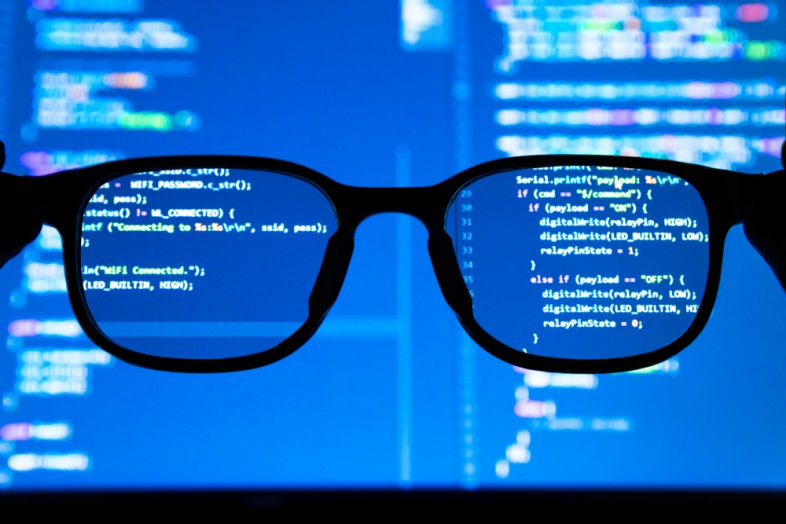The secret to crack a data science job interview lies within how well you have prepared your resume and how confidently you face the interviewers. Also, it is imperative to know about the expected question while in-person panel interviews before appearing for the entry-level data science job interviews. It’s not just about your knowledge, but also how you showcase your knowledge that determines your success or failure in a data science interview. Right from the underpinnings to the advanced concepts of data science- you should have adequate knowledge of the entire subject to nail an interview. Let’s go through the information furnished below that might help you a lot to attain a job offer for data scientist role.
Scope in Data Science
Data science has emerged as a very lucrative career option since the companies now splurge a lot of money on constituting the team of data scientists. There has been a crunch in data science competence as the technology is new and therefore, the market demand for data scientists always continues to rise. There are the online data sciences courses like data science bootcamp that not only help you transform as a data scientist but also offer job guarantee. With a computer science background, an engineer can kick-off his data science learning with the easy availability of such courses. According to John Foreman, VP- Product Management, MailChimp, it is always challenging to find and hire apt data scientists because of multi-disciplinary nature of this technology. In such a scenario, if you know the most possible interview question, then you inch closer towards nailing data science job interviews.Candidates that fit the data scientist role
What a company commonly looks in an entry-level data scientist is a person with 3-4 years of experience as a Business Analyst who holds a good command over Python, SQL, and data visualization. Of course, the person should be willing to move to the data science field. The senior software engineers seeking the opportunities to work on machine learning and analytics projects are also fit for entry-level data scientist role.Resume guidelines for data science job applicants
Resume is the face of an applicant, which carries the details of their expertise and professional accomplishments. Hence, knowing the guidelines for a resume before diving deep into questions is always wise.- Keep it a one-page resume- Employers doesn’t have the whole day to flip the pages of your resume. Keep in a one-page resume with details of your email ID, GitHub account and LinkedIn account.
- Showcase your recent projects– It is always beneficial to describe your recent projects and technologies you deployed to deliver the same. If possible, show the project outcomes as well.
- Describe your skills– Highlight your key skills around data manipulation, organization and database along with the key projects you delivered, employing these skills.
- Mention your certification/ attended bootcamps– Don’t skip mentioning your earned certifications or any hackathons or bootcamps you had attended in the past. It shows your dedication to learning the technology.
- List down your academic credentials- Your educational background should also be part of your resume.
- Make your resume searchable– Use the industry-oriented keywords in your resume, like machine learning, analytics, Python, SQL, NoSQL, automation, etc. to make it more searchable.
Let’s take a quick tour to the interview questions
Being an applicant for entry-level data scientist job, you need to prepare yourself for the in-person data science interview to be conducted by a panel. We have listed down the most probable questions for data science job interview below to help you nail the same easily.Possible Questions by Data Science Vice President
- How do you define data science?
- How was your previous work experience? Did you face any issue in previous job?
- Let’s discuss your last project.
- How do you differentiate between supervised and unsupervised learning?
- Define logistic regression.
- Can you give any example of logistic regression?
When it’s between Sr. Data Scientist V/S Cub Data Scientist
The questions from data scientist might be casual, revolving around your past projects & their outcomes, challenges you undertook while working in the previous organization, etc. They might also discuss their current data science team size & structure, projects they’re handling and their project priorities. The possible questions from data scientist may include:- Why do we perform A/B testing?
- Which language you prefer for text analytics- Python or R and why?
- Is data cleaning helpful in the analysis?
- Can you define cluster sampling?
- I hope you know about systematic sampling as well.
- How do you differentiate the Validation Set and Test Set?
- What is cross-validation?
Few more possible generic questions by Senior Data Scientists
- Have you ever introduced any out-of-the-box idea which helped in project progress? If yes, then kindly explain.
- Do you know how to develop A/B test?
- Can you tell us about the largest number of data handled by you and your data-handling results?
What usually Chief Technical Officers (CTO) ask?
- Any entrepreneurial experience you want to share with us…
- List down the areas where you need more development.
- Why did you leave your last job/ why do you want to leave your current job?
- Why do you want to join us?
- Throw some light on your key learning points in your previous company.
- How has been your data science journey till now?
What VP Marketing has to interview you?
It’s quite obvious to assume that the questions from Marketing VP will be more business-centric. These questions may include but not limited to:- Why do you want to join our organization?
- How was your previous job role? Did you have interactions with Sales/ Marketing people in last company?
- Do you know how to communicate your insights through visual presentation?
- Have you ever been engaged in data science activities apart from your regular job?








